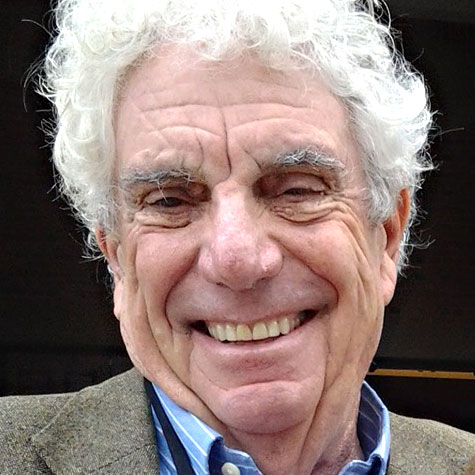I set out to write about the presidential election, but I changed my mind when I ran into Eric Gordon, the director of Workmen’s Circle.
Workmen’s Circle and Democrats for Israel hosted a presentation on Feb. 25 by surrogates for three Democratic presidential candidates, Sens. John Kerry and John Edwards and Rep. Dennis Kucinich, and I had gone there to sample reaction in the Jewish community to the election.
Gordon, a friendly, casually dressed man with a lively manner, welcomed me. It was my first visit to Workmen’s Circle, located on South Robertson Boulevard, and Gordon showed me around. Then he invited me to cover a forum on health care to be held at Temple Beth Am later this month.
I explained that I’d be out of town that night. That was the wrong answer. At least pass it on to the paper, Gordon said. I said I would, but I must have looked disinterested, and maybe I was.
He seemed disappointed. Well, he said, Jews need health care, too.
I didn’t give the exchange much thought until I began to write this column.
As usual, I went over my notes. I recalled the sincerity of the surrogates, Johanna Dordick for Edwards, Andrew Lachman for Kerry and Ted Daley for Kucinich.
Paul Kujawsky of Democrats for Israel asked the surrogates if their candidates agreed that the United States should support Israel’s policy decisions, “whatever they are,” because Israel is a democracy and a friend.
None took him up on the pledge. The speakers for Kerry and Edwards made sure their replies cast their men as staunch supporters of Israel. Only Daley, speaking for Kucinich, varied the tune: “Dennis is pro-Israel. Dennis is pro-Palestinian.”
Then I read my notes for another event I had attended, a rally for Kerry the previous Sunday.
The substantial crowd was enthusiastic. “I think he’s got it,” Howard Cohen, a political analyst and longtime activist, told me.
“He has the wisdom of experience, and I don’t know how you get that except from time,” said Helene Brown, a research director at UCLA’s cancer center.
Others liked him because they think he has the best chance of winning in November. “Trying to beat Bush,” said Holly Durivage, when I asked her why she was handing out balloons and name tags at the rally.
That’s a major rationale for the Kerry candidacy, that he can defeat President Bush, fulfilling the hope so fervently expressed by one member of the Workmen’s Circle audience, that the Democratic candidate can “rip the mask off this SOB.”
But that’s not enough for a winning campaign. Campaigns based on such a premise turn too negative, or they become sterile, bland, repetitive, too safe, totally governed by polls, too distant from Americans’ gut concerns.
That’s not what I’m looking for.
Nor am I looking for the winner of a “Who’s Israel’s Best Friend” contest. I’m tired of examining the nuances of every Kerry and Bush statement on the Middle East, trying to decide who loves Israel most. No matter who wins, the administration, old or new, will continue on the present course of timidly nudging the Sharon government toward a two-state solution.
This campaign should be about reality, about controversial issues that will separate the candidates in the fall. So my thoughts returned to Gordon and his pitch for the health-care forum.
Why has health care been on the margins of the presidential campaign? Its importance was clear to me last year, when I wrote about the Jewish Family Service’s Valley Storefront Adult Day Health Care Center. Care for the elderly there is financed largely by Medi-Cal, the state’s aid program for the poor, and the likely victim of more budget cuts.
Lack of medical care hurts everyone. Visit the emergency rooms at any county hospital and you’ll see crowds of the uninsured, waiting hours for medical care.
When we hear about such misfortune, we may forget that our people are among those who are hurting. Nine percent of American Jews over 65 live at or below the poverty level, according to figures cited by the Jewish Telegraphic Agency. About 18 percent live in households that earn $15,000 or less a year.
It’s not just the elderly poor. Misery is reaching into the middle class as corporate medical plans are slashed and jobs and companies are lost.
As the Web site for the medical care forum declared: “Probably the largest single issue of critical import to Americans today is health care: Who gets it? Who pays for it? Who is left out?”
Those questions will be discussed at the forum, sponsored by Zay Gezunt: The Jewish Coalition for Healthcare on March 18, 7 p.m. at Temple Beth Am. State Sen. Sheila Kuehl (D-Los Angeles) will present her plan for comprehensive health care.
Consider it a first step in bringing reality to the political campaign.
Bill Boyarsky’s column on Jews and civic life appears on
the first Friday of each month. Until leaving the Los Angeles Times in 2001,
Boyarsky worked as a political correspondent, a metro columnist for nine years
and as city editor for three years. You can reach him at bw.boyarsky@verizon.net
.























 More news and opinions than at a Shabbat dinner, right in your inbox.
More news and opinions than at a Shabbat dinner, right in your inbox.